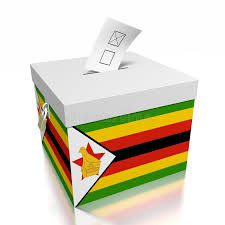APA-Harare (Zimbabwe) The Zimbabwe government has come under fire for allegedly refusing to accredit some foreign journalists ahead of this week’s tightly contested general elections.
In separate statements on Monday, the US State Department and the South African National Editors Forum (SANEF) expressed concern over the alleged decision by the Zimbabwean authorities to block foreign journalists from covering the August 23 elections.
Assistant Secretary of the US Bureau of African Affairs, Mary Catherine Phee, said the Harare authorities had rejected “multiples” of foreign journalists who wanted to cover the elections.
“Disappointed Zimbabwe denying accreditation requests to cover elections from multiple international journalists. The game is clear: For those who applied on time, rejection came very late and appeals not accepted; alternates don’t meet the deadline of applying 60 days in advance,” Phee wrote on X (formerly Twitter).
According to the Zimbabwe Electoral Commission, a total of 15 foreign journalists had been accredited as of August 16.
SANEF called on the Zimbabwe government “to grant swift and unbiased accreditation to journalists from South Africa, the SADC region, Africa, and the world, allowing them to cover the elections and report without undue hindrance.”
“Further, Zimbabwe security agencies must cease all forms of unjustified deportation of persons in Zimbabwe to observe elections and the harassment against Zimbabwean journalists and civil society organisations, enabling them to carry out their vital work without fear,” SANEF said.
The call came after Zimbabwean authorities last week deported four South African governance activists who had entered the country on a “research” project. The leader of the deported group is a former South African broadcaster.
The Zimbabwean government, however, insisted that the quartet had misrepresented the real purpose of its visit.
Over six million Zimbabweans are expected to cast their votes on Wednesday to choose a president, members of the National Assembly and local government councillors.
The poll is seen as a two-horse race involving Mnangagwa’s ZANU PF and the main opposition Citizens Coalition for Change of Nelson Chamisa.
JN/APA


